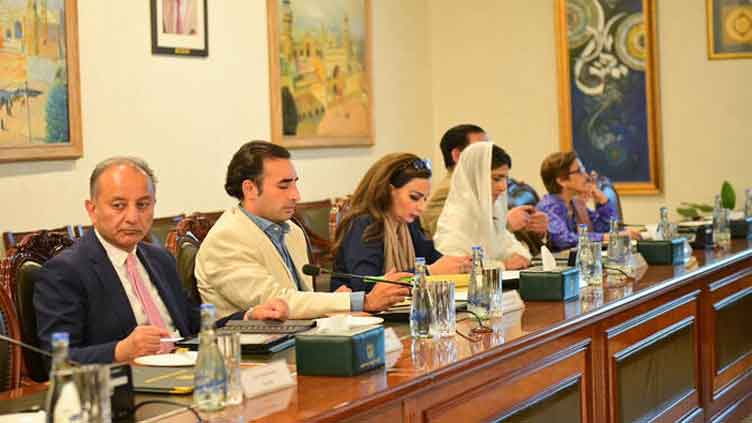Pakistani delegation sounds alarm on India's aggression at UNSC

Pakistan
The delegation underscored Pakistan's commitment to restraint and revival of the IWT
NEW YORK (Dunya News) - Pakistan's parliamentary delegation, led by Pakistan People's Party chairman Bilawal Bhutto Zardari, met representatives of UN Security Council's elected member states to brief them about the threats to regional security due to India's actions.
The delegation shared Pakistan's position with representatives of Denmark, Greece, Panama, Somalia, Algeria, Guyana, Japan, South Korea, Sierra Leone and Slovenia.
The delegation underscored Pakistan's commitment to restraint, revival of the Indus Waters Treaty, and initiation of a comprehensive dialogue to address outstanding issues with India, particularly the Jammu and Kashmir dispute.
It briefed the UNSC elected members that holding Indus Waters Treaty in abeyance may lead to water shortage, food crisis and environmental disaster in Pakistan.
The delegation called on the members of the Security Council to move beyond conflict management and actively support conflict resolution in South Asia.
Delegation head Bilawal Bhutto Zardari refuted baseless Indian allegations with substantiated arguments.
He categorically stated that India's baseless and premature allegations against Pakistan, were made in the absence of any credible investigation or verifiable evidence.
Bilawal Bhutto Zardari highlighted that India's reckless actions including targeting of innocent civilians and suspension of Indus Waters Treaty is a threat to regional peace.
He highlighted that Pakistan's response to Indian aggression was measured, responsible and in accordance with the UN Charter.
The elected members of UN Security Council appreciated Pakistan's outreach and welcomed its reaffirmation of commitment to peace and diplomacy.
They noted the significance of de-escalation, respect for international law, and the peaceful settlement of disputes emphasized that the UN Charter must guide state conduct, particularly in regions of high sensitivity such as South Asia.
They acknowledged the risks posed by any further escalation and stressed the need to pursue diplomatic solutions.


